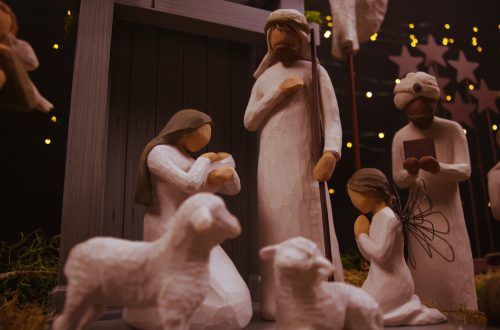Life Map: Why God Seldom Gives Us the Particulars of His Plan
When it comes to maps, I’m hopeless. Instead I prefer directions that go something like, “Take a right at the first stoplight. When you get to the second stop sign make a left. Turn into the shopping center with the green and white stripped bakery awning. I’ll meet you there for lunch at noon.” Now you’re speaking my language. You too?
So often we like clear directions with lefts and rights, stops signs, and land markers. And sometimes we demand the very same thing of God. I want to know when we’ll start our family, where we’ll live five years from now, and how we’ll pay for all of it.
Perhaps this is why when I meet people in Scripture who asked lots of questions and even frustrated God, I lean in a little closer. Take Moses when he stood at the burning bush. God appeared to him in a flame of fire, revealed His plan for His harassed people, and called Moses to deliver them. Meanwhile Moses stood there arguing with the flaming bush.
Flip through Exodus 3 and 4 and marvel at how many times you read the phrase, “But Moses.” God came to Moses and broke a four-hundred-year silent spell, saying that He had heard Israel’s cry, had come to deliver, and would bring them to a better land. Moses asked a question. God revealed His most personal name to the soon-to-be leader. Moses asked another question. God laid out a brief sketch of His plan—gather the elders, tell them I AM sent you, and share His message. Moses countered, contending that the people wouldn’t believe or listen. So God gave him three signs. A staff turned to a snake. Leprosy grew and healed on command. And water from the Nile turned to blood. But Moses made excuses.
By the end of the exhausting dialogue, he spewed out the honest truth, “Oh, my Lord, please send someone else” (Exodus 4:13). His request made God angry, but God wouldn’t give up on the naïve leader. He promised a sidekick and a message. God gave Aaron to be Moses’ mouthpiece and said, “You shall speak to him and put the words in his mouth, and I will be with your mouth and with his mouth and will teach you both what to do” (Exodus 4:15). With that, Moses ran out of buts.
Most of the time, my spiritual life looks much like Moses’ conversation. I want the plans more than God’s presence. And when life feels unsettled and uncertain, I argue and make excuses.
Yet despite his arguments and opposition, Moses teaches us how to follow God’s lead. He didn’t have all the answers. And I’m not so sure he completely believed. But he set out anyway.
Most of the time when God says go, He provides His presence and not the particulars. He alone satisfies and sustains us—far beyond any map or plan—until we learn that His is trustworthy and enough.
So if you, like me, find yourself trekking through an unknown wilderness, let go of your map. The unfamiliar teaches us dependence. It breaks our stubborn streak. And finally we learn faith.
This season is teaching me to stop clutching onto my plans and start clinging to Him instead, listening for His direction. Will you join me?


